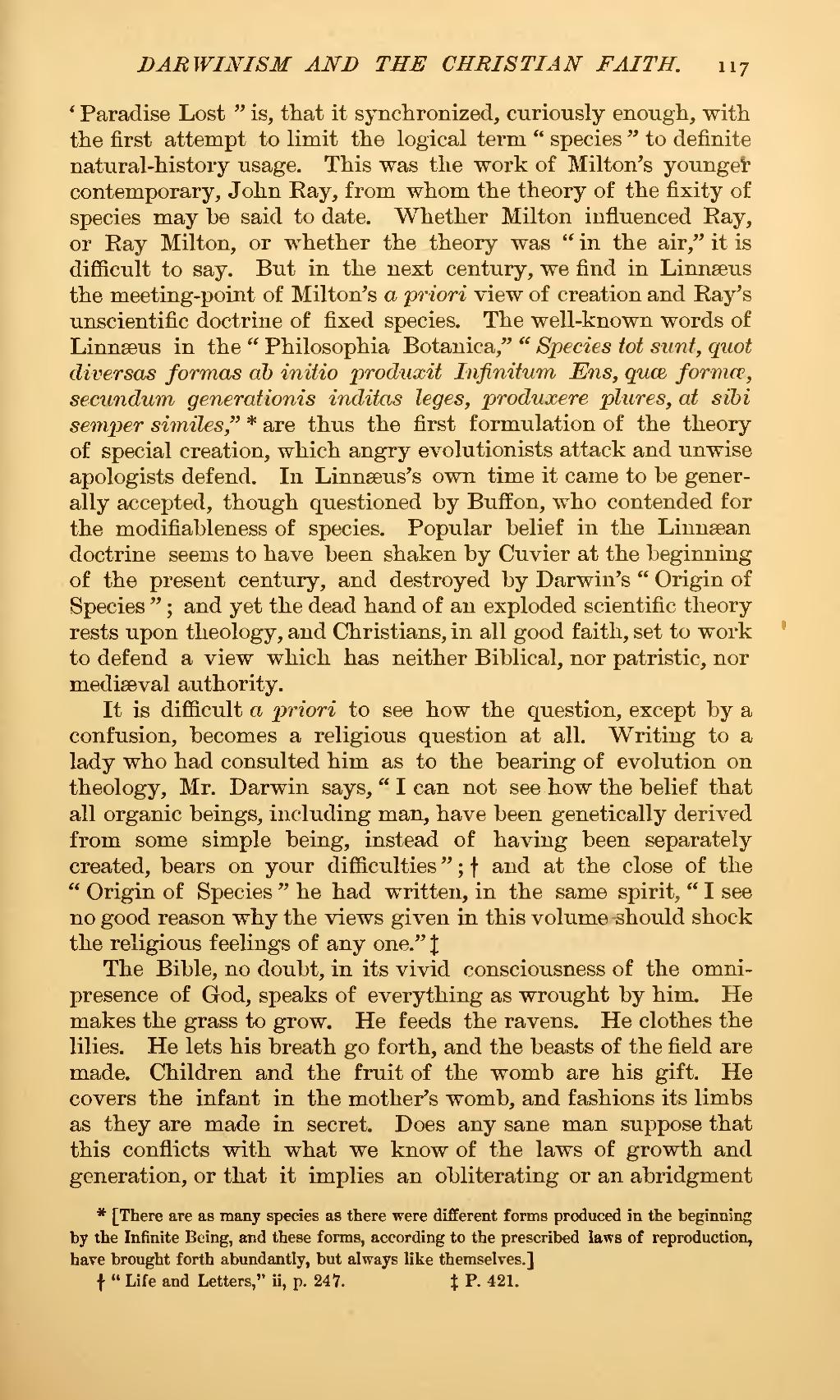"Paradise Lost" is, that it synchronized, curiously enough., with the first attempt to limit the logical term "species" to definite natural-history usage. This was the work of Milton's younger contemporary, John Ray, from whom the theory of the fixity of species may be said to date. Whether Milton influenced Ray, or Ray Milton, or whether the theory was "in the air," it is difficult to say. But in the next century, we find in Linnæus the meeting-point of Milton's a priori view of creation and Ray's unscientific doctrine of fixed species. The well-known words of Linnæus in the "Philosophia Botanica," "Species tot sunt, quot diversas formas ab initio produxit Infinitum Ens, quæ formæ, secundum generationis inditas leges, produxere plures, at sibi semper similes,"[1] are thus the first formulation of the theory of special creation, which angry evolutionists attack and unwise apologists defend. In Linnæus's own time it came to be generally accepted, though questioned by Buffon, who contended for the modifiableness of species. Popular belief in the Linnæan doctrine seems to have been shaken by Cuvier at the beginning of the present century, and destroyed by Darwin's "Origin of Species"; and yet the dead hand of an exploded scientific theory rests upon theology, and Christians, in all good faith, set to work to defend a view which has neither Biblical, nor patristic, nor mediæval authority.
It is difficult a priori to see how the question, except by a confusion, becomes a religious question at all. Writing to a lady who had consulted him as to the bearing of evolution on theology, Mr. Darwin says, "I can not see how the belief that all organic beings, including man, have been genetically derived from some simple being, instead of having been separately created, bears on your difficulties";[2] and at the close of the "Origin of Species" he had written, in the same spirit, "I see no good reason why the views given in this volume-should shock the religious feelings of any one."[3]
The Bible, no doubt, in its vivid consciousness of the omnipresence of God, speaks of everything as wrought by him. He makes the grass to grow. He feeds the ravens. He clothes the lilies. He lets his breath go forth, and the beasts of the field are made. Children and the fruit of the womb are his gift. He covers the infant in the mother's womb, and fashions its limbs as they are made in secret. Does any sane man suppose that this conflicts with what we know of the laws of growth and generation, or that it implies an obliterating or an abridgment
